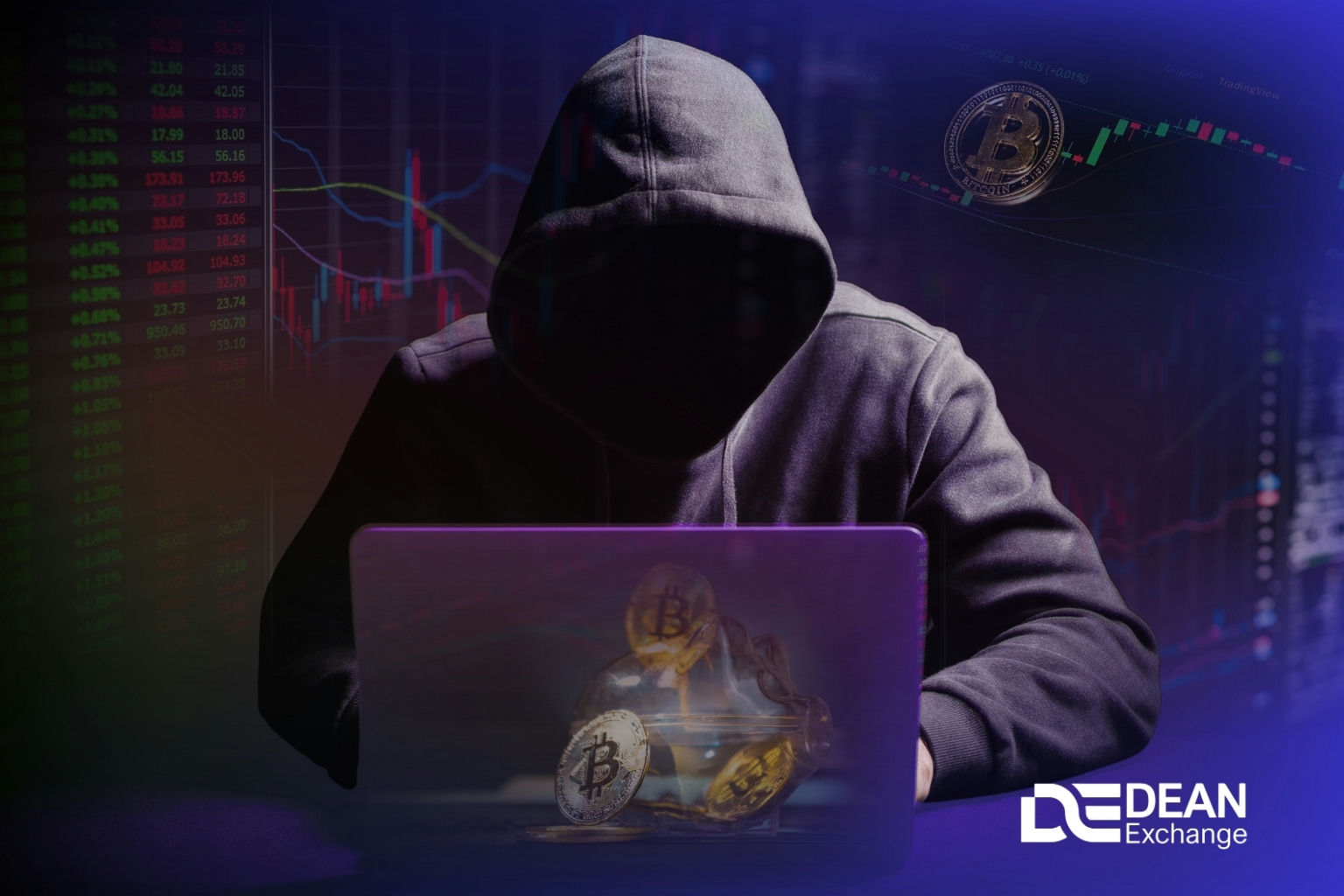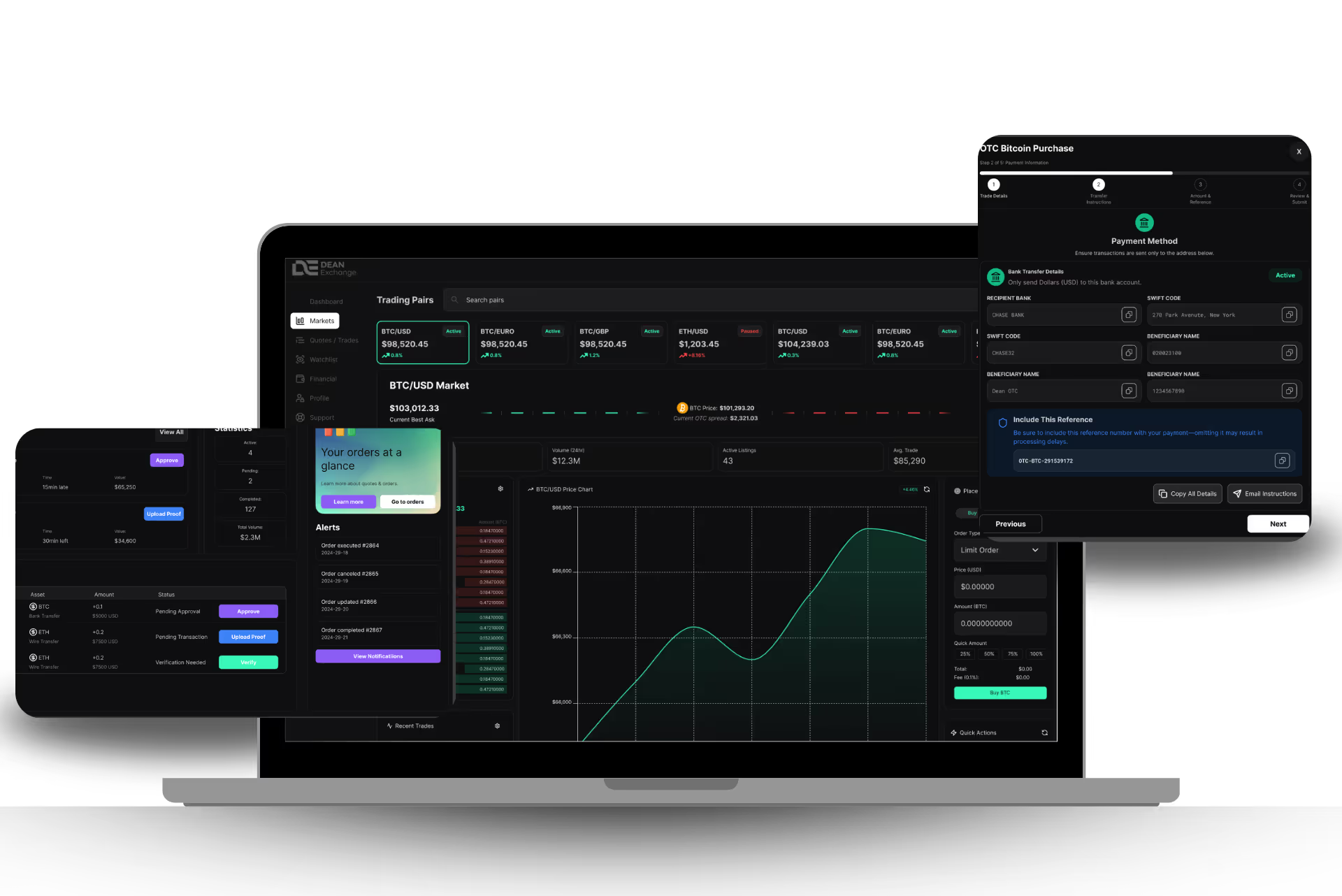By the
This is some text inside of a div block.
This is some text inside of a div block.
•
5
min read

Cryptocurrency continues to gain mainstream attention as both a powerful investment vehicle and a technological innovation. However, with its rapid rise has come a surge in crypto scams—fraudulent schemes that exploit the hype, anonymity, and decentralized nature of digital assets. From phishing emails to rug pulls, these scams can result in devastating financial losses, especially for beginners.
This article outlines the most common types of scams, explains how to recognize red flags, and provides actionable tips for safe crypto trading and investing. At Dean Exchange, we are committed to promoting transparency and user education through in-depth cryptocurrency tutorials, expert insights on crypto market trends, and interactive live blockchain sessions that teach users how to protect their assets confidently.
Several factors make the crypto space attractive to fraudsters:
These conditions create a perfect storm where malicious actors can flourish—unless users are informed and proactive about security.
Phishing involves tricking users into revealing private information—like wallet keys, passwords, or recovery phrases—through fake websites, emails, or social media accounts.
Example:
You receive an email that looks like it's from your cryptocurrency exchange, asking you to verify your account. The link leads to a fake login page that captures your credentials.
Red Flag: Exchanges will never ask for your password or seed phrase via email or social media. Always double-check URLs and use official apps or bookmarks.
A rug pull occurs when a crypto project raises funds (often through a new token offering) and then disappears—leaving investors with worthless tokens.
Example:
In 2021, the Squid Game token skyrocketed in value before developers drained the liquidity pool and vanished, causing investors to lose millions.
Red Flag: If a project lacks transparency, verified team members, or independent audits, it may be a scam in disguise.
These schemes promise high returns with little risk by using money from new investors to pay earlier ones. Eventually, they collapse when new funds run out.
Example:
BitConnect was a classic Ponzi scheme that promised daily returns through a "trading bot." It collapsed in 2018, wiping out over $1 billion in user funds.
Red Flag: Guaranteed returns, complex referral structures, and pressure to recruit others are clear warning signs.
Scammers pose as celebrities, influencers, or crypto company representatives to trick users into sending crypto or sharing sensitive information.
Example:
On Twitter or Telegram, a fake Vitalik Buterin account might promote a “giveaway” asking users to send ETH to receive double in return.
Red Flag: No legitimate figure will ask for crypto payments or offer to multiply your funds.
Only trade and invest on well-known cryptocurrency exchange platforms with a proven track record of security, compliance, and user support. Look for exchanges that offer:
Avoid platforms with no physical address, poor reviews, or no regulatory oversight.
Whether you're using a hot wallet (connected to the internet) or a cold wallet (hardware-based), never share your private keys or recovery phrases with anyone. Store them offline in secure locations.
Best practices:
Before investing in any project or token:
Dean Exchange Tip: Our cryptocurrency tutorials include a guide to evaluating new projects—teaching users how to analyze whitepapers, token use cases, and team credibility.
Decentralized exchanges (DEXs) like Uniswap offer open access to token trading, but they also come with risks. Many scams launch fake tokens with names that mimic legitimate ones.
Best practices:
Scammers often exploit the latest crypto market trends—from NFTs to meme coins—to lure victims. Staying informed helps you spot too-good-to-be-true opportunities and avoid hype-driven schemes.
Follow trusted news sources, community leaders, and educational platforms like Dean Exchange to stay grounded in reality.
Many victims of crypto scams fall prey due to inexperience. Commit to learning how crypto works before investing. Start with beginner-friendly courses, tutorials, and real-time Q&A opportunities.
Dean Exchange offers:
Knowledge is your best defense.
If you believe you’ve encountered or fallen victim to a scam:
Some blockchain tools can help track stolen funds, but recovery is rare. Prevention is far more effective than remediation.
At Dean Exchange, security isn’t an afterthought—it’s built into every learning experience we offer. We help users confidently navigate the crypto space by providing:
Whether you’re trading, investing, or just starting out, Dean Exchange empowers you to engage in crypto with clarity and control.
The growth of crypto is exciting—but with opportunity comes risk. As scams grow more sophisticated, staying vigilant is essential. By learning how frauds work, verifying every platform and token, and securing your assets, you can enjoy the benefits of blockchain without falling victim to its dark side.
Education is the most powerful safeguard. Dean Exchange is here to help you learn, trade, and invest securely with confidence and clarity.


Join our newsletter for exclusive insights, breaking crypto trends, and learning opportunities—delivered straight to your inbox.